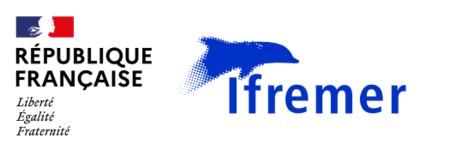Mandate and action of IFREMER regarding marine materials
Exploration and resource inventories
The national inventory of marine aggregates was conducted from 1969 to 1981 for the government. At the joint behest of IFREMER and local governments, regional inventories were also carried out in the regions of North-Pas de Calais, Brittany, Guadeloupe and Martinique.
The recognised resources off mainland France were evaluated at 33 billion m3 of which 600 million were considered to be exploitable reserves. Sites favourable for material extraction were then identified.
Research programmes and working groups
Given its multi-disciplinary expertise in geology, sedimentology, modelling, marine biology, marine metallogeny, fisheries monitoring and its ocean-going resources, IFREMER is more and more solicited as the national organisation to launch research programmes and thus develop expertise on the multiple effects of material extraction on habitats (seabed characterisation, associated fauna and flora).
To answer these requests, IFREMER created in 2001 an expertise centre intended for the organisation of this research and for ensuring interaction with decision-makers, local governments, and diverse end-users of the sea (fishers, extraction companies) and society at large.
IFREMER is also a partner in the international working groups on aggregate extraction such as that of ICES “Effects of extraction of marine sediments on the marine ecosystem” and the European Marine Sand and Gravel Group (EMSAGG). The Institute is also involved in European programmes (Interreg).
IFREMER, scientific and technical advisor
Based on its various skills and expertise, IFREMER acts as a scientific and technical advisor for decision makers (ministries, prefectures, devolved government agencies) to provide advice and opinions on the applications for exploitation or exploration of marine materials (decree 71-360 of 6 May 1971, decree 85-448 of 23 April 1985, decree 95-427 of 19 April 1995, decree 95-696 of 9 May 1995, decree 98-970 of 26 October 1998). The Institute takes part in the discussions that lead to the revision of regulatory texts.
